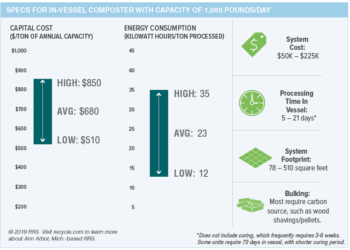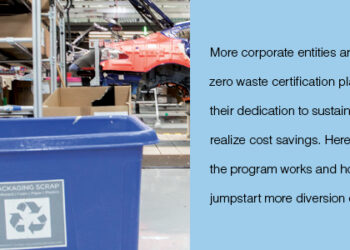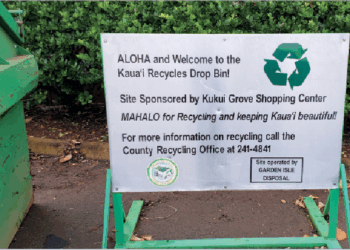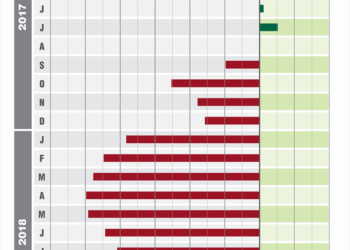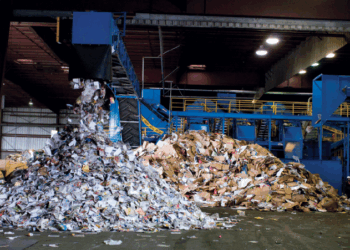Resource Recycling Magazine
Data corner: The ins and outs of in-vessel composting
Commercial food waste generators – malls, universities and hospitals, for instance – are increasingly interested in diverting food waste from...
A steady path forward
This article appeared in the March 2019 issue of Resource Recycling. Subscribe today for access to all print content. We...
Q&A: Invested in the industry
This article appeared in the February 2019 issue of Resource Recycling. Subscribe today for access to all print content. Maite Quinn,...
Unlocking the plastic paradox
This article appeared in the February 2019 issue of Resource Recycling. Subscribe today for access to all print content. Stakeholders in...
Teaming up in challenging times
This article appeared in the February 2019 issue of Resource Recycling. Subscribe today for access to all print content. In June...
Getting down to business
This article appeared in the February 2019 issue of Resource Recycling. Subscribe today for access to all print content. Earth Friendly...
Community Spotlight: Diversion efforts bloom on Hawaiian island
Kauai is known as the Garden Island, so named for its impressive array of green space. But the Hawaiian island’s...
Data Corner: How market shifts have hit one municipal program
In late 2018, officials in the city of Walla Walla, Wash. (population 32,000) issued a report that showed the economics...
Shifting the economics
This article appeared in the January 2019 issue of Resource Recycling. Subscribe today for access to all print content. The landfills...
Facility Focus: West Vancouver Materials Recovery Center
Clark County, Wash., and its seat, Vancouver, reflect a history of western exploration of the area. Vancouver, Wash. (not to...












